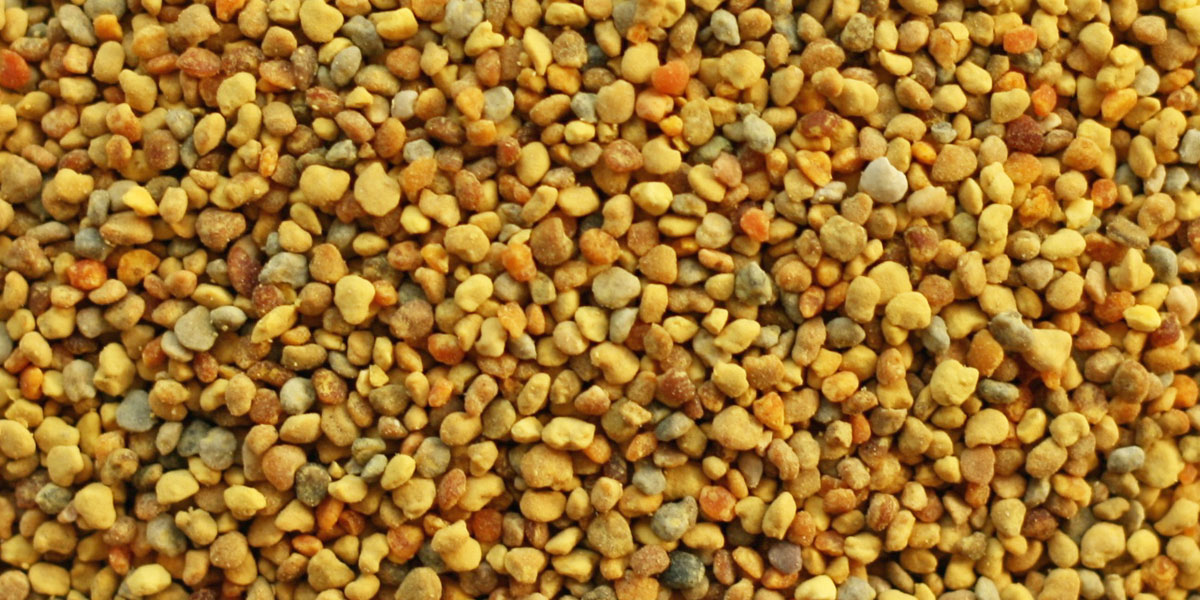Bee Pollen
Just like other “superfoods,” bee pollen is labeled as such because it contains a heck of a lot of nutrients and goodness including vitamins, minerals, amino acids, antioxidants, and essential fatty acids in their tiny yellow granules. You can use bee pollen in smoothies, oats, yogurt, desserts, and even as natural sprinkles!
- Bee pollen comes from the very fine powder made by the stamen (male part) of a flower. As bees buzz about from flower to flower, they collect microscopic bits of pollen as they go. Bee’s tibias have a concave area where the bits of pollen dust are stored and formed into a single golden granule; which becomes the part that we consume.
- Bee Pollen packs an impressive list of nutrients including almost all the B complex Vitamins, Vitamin C, Vitamin A, Vitamin E, Vitamin K, folic acid, carotenoids, trace minerals, essential fatty acids, digestion enhancing enzymes, and all 22 amino acids required for our bodies to make a protein. This means that bee pollen is a small, but good source of protein for vegetarians and vegans who consume bee products.
- Although not widely studied, bee pollen may also provide relief from allergies, PMS, sports performance, mouth sores, joint pain, and anti-aging.
- An important side-note: If you have a severe allergy to bees, you may be allergic to bee pollen. Please use caution and common sense before taking bee pollen.
Vegukate Tips:
You can usually find bee pollen at your local honey supplier, farmer’s markets, or local farms. You can also find bee pollen at natural grocery stores and online.
Store bee pollen in an airtight container in the refrigerator, where it will keep for 6 months.
-
Anti-Inflammatory Pineapple Dream Smoothie

Sweet and bright pineapple, creamy banana, juicy orange, zippy ginger + crunchy chia + earthy turmeric + smooth nut milk = your favorite new way to get anti-inflammatory. Read the recipe (3 comments)
-
Green Bee Pollen Smoothie

This smoothie is loaded with green goodness, beneficial fats, and digestive and zesty lemon. It’s a great pick-me up and will really leave you glowing, energized, and feeling bee-autiful! Read the recipe (2 comments)

